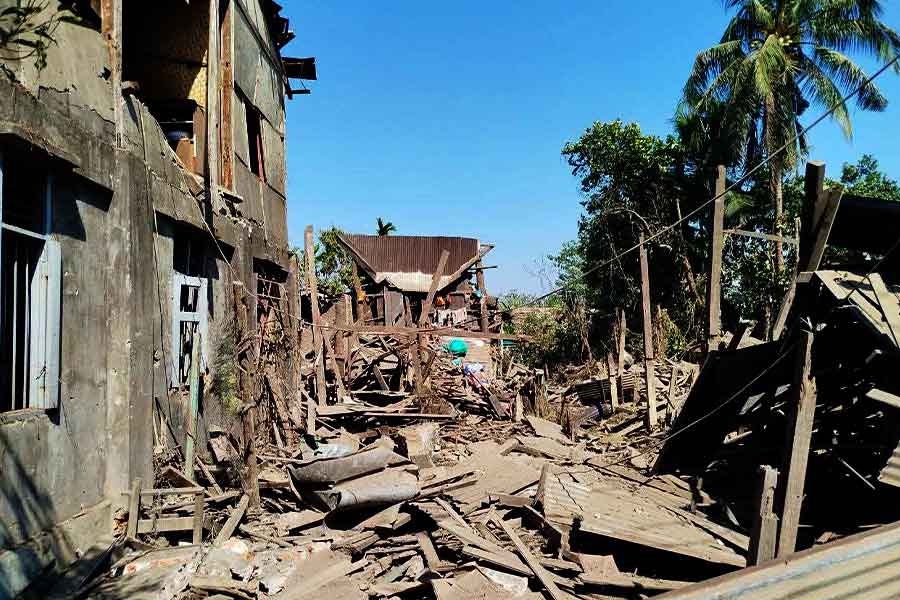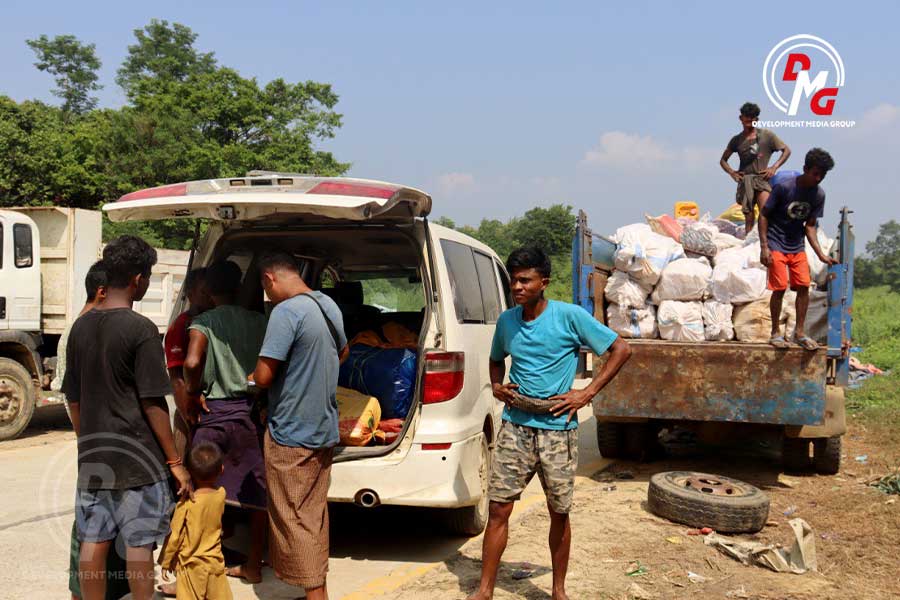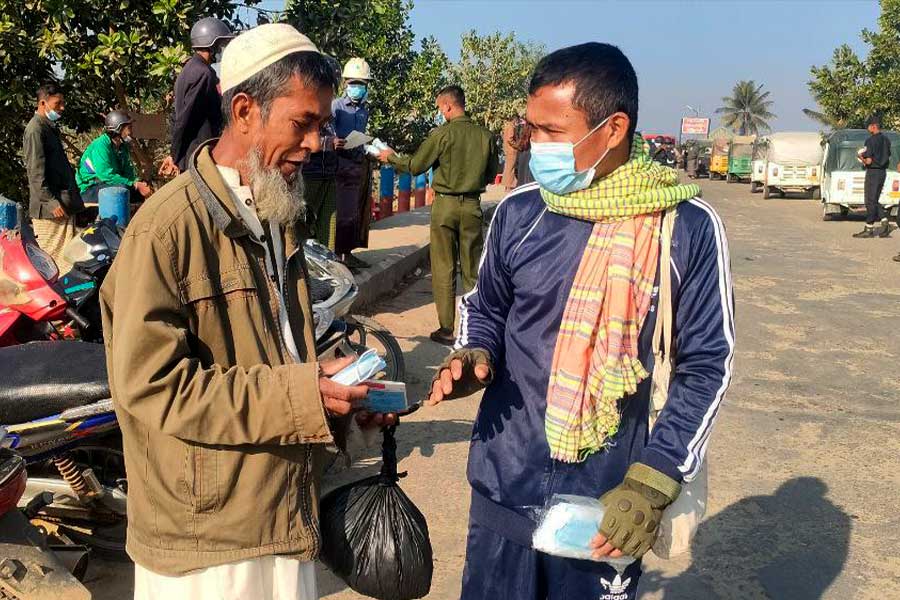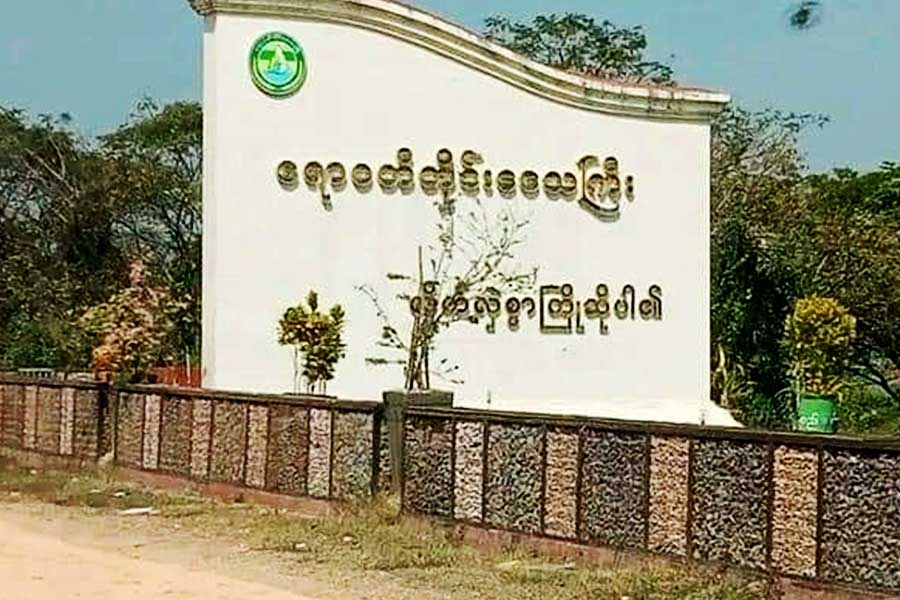Conservation of Sarus cranes lacking in Arakan State
Sarus cranes are on the verge of extinction in Arakan State, say activists advocating for conservation of the local environment and biodiversity.
19 Sep 2023

DMG Newsroom
19 September 2023, Sittwe
Sarus cranes are on the verge of extinction in Arakan State, say activists advocating for conservation of the local environment and biodiversity.
The cranes have historically been spotted in Mrauk-U and Rathedaung townships, and are believed to be present also in other townships, according to the Rakhine State Biodiversity and Nature Conservation Association.
“There are only a few of them. We have only seen a group of four to six of them when we travel by boat to Mrauk-U. Their main habitat is near Thanthayar Village, outside Mrauk-U town,” said association chairman Ko Yan Naung Soe.
“We have not been able to carry out a campaign to conserve Sarus cranes. To carry out a campaign, we have to study their habitat, and educate local residents near their habitat,” he added.
Among the factors putting Sarus cranes at risk as a species are disappearance of their habitats, use of pesticides on farms, and the stealing of their eggs and destruction of their nests.
A resident of Thantharyar village said: “They live around here. We can’t go close to them. They lay eggs in farms at this time of the year.”
There are three species of cranes in Myanmar, according to the environmental and wildlife conservation department.
Neither authorities nor wildlife conservation groups have so far taken systematic measures to conserve Sarus cranes in Arakan State, so the size of their population and their habitat range are not well known.
Assistant director U Aye Min Hlaing of the Forest Department said: “We still do not have a bird department. So, we still do not have data about Sarus cranes.”
The International Union for Conservation of Nature (IUCN) has flagged these cranes as vulnerable, and on its “red list”.
Sarus cranes are mainly found in Ayeyarwady Region, with smaller populations also found in Bago Region as well as Shan and Kachin states.
















.jpg)
